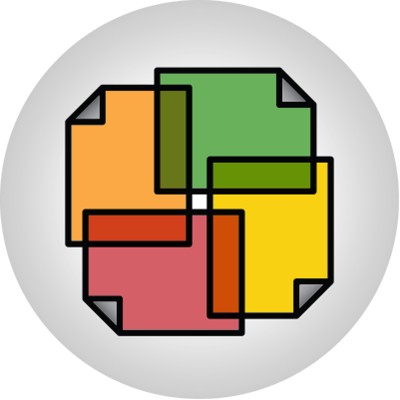 SEARCH
SEARCHProduct successfully added to your shopping cart
There are 0 items in your cart. There is 1 item in your cart.
Psychological Ownership Questionnaire
Authors: James B. Avey & Bruce J. Avolio
The Psychological Ownership Questionnaire (POQ) assesses two theoretically derived, unique forms of psychological ownership: Preventative and Promotive .
Preventative psychological ownership is characterized as territoriality. That is, when individuals feel ownership over something they may tend to be territorial about it. This may include the feeling of not wanting to share the object (such as resource use or information) and feeling as though, in general, they should be the one to determine what happens to or with the object.
The second and likely more ideal form of psychological ownership is promotive in nature. Promotive psychological ownership is comprised of four distinct yet related dimensions. They are self-efficacy, accountability, sense of belongingness, and self identity.
Copyright © 2007 by James B. Avey & Bruce J. Avolio
- Buy It
- Sample Items
- Product Specs
- Translations
- Related Products
- Transform Survey Hosting (Data)$2.75Minimum purchase of 20. Allows you to administer the POQ as an online survey using Mind Garden's Transform™ System. Includes data collection: data file with participants' raw data and raw scale scores. Customization services are available.In Stock
- License to Administer$2.75Minimum purchase of 50. Allows you to administer the POQ as an online survey via a non-Mind Garden survey system or as a paper and pencil survey. The downloadable PDF file includes one copy of the POQ, scoring key, and permission to administer the POQ up to the quantity purchased. The PDF is non-refundable.In Stock
- Research Permission$0.00The authors are making the POQ available to researchers who meet specific conditions, i.e., for use only in non-commercial research. Not for use in consulting, training, or similar function; not for use in profit-seeking or other financial or commercial purposes.In Stock
Features of the POQ
Purpose: Assess Promotive and Preventative psychological ownership.
Length: 16 items
Average completion time: 10 minutes
Target population: Adults
Administration: For individual or group administration
Uses of the POQ
- Positive psychology research
- Career/worklife research
Scales
Preventive Psychological Ownership
When individuals feel ownership over something they may tend to be territorial about it. This may include the feeling of not wanting to share the object (such as resource use or information) and feeling as though, in general, they should be the one to determine what happens to or with the object.
Promotive Psychological Ownership
Self-efficacy: constitutes one’s belief in their personal ability to accomplish a given task. This has also been referred to as confidence.
Accountability: the tendency for an individual to feel a sense of responsibility to hold individuals and organizations accountable for the object of ownership. For example, if an individual felt psychological ownership in an organization, they may be more likely to challenge the leadership of the organization to justify their decisions regarding the management of the organization as they feel they have a “right to know” what is happening with their object of ownership.
Sense of Belongingness: also referred to as a “sense of place”. This dimension assesses the extent to which an individual feels “at home” in their place of work. Those who tend to feel a sense of ownership at work that is more positive will report they have a place where they belong in the organizational context.
Self Identify: the most desirable dimension of promotive psychological ownership. At the highest level of psychological ownership an individual will personally identify with the object (such as an organization) of ownership. At this level, the object is seen by individuals as an extension of who they are. Therefore, great care and attention is given to this object of ownership.
For Non-Commercial Unsupported Research, please order the POQ Research Permission.
If you are unable to find the translation you need, you can request permission to make a translation.
Available with POQ License to Administer:
These translations are available free of charge with your purchase of the license. Also available with POQ Research Permission. Translations are provided in a separate pdf-format file. Select the language from the Translation drop-down list. Need multiple translations? Contact us.
- Arabic
- Chinese-Cantonese
- Chinese-Mandarin
- Dutch
- German
- Hebrew
- Indonesian
- Korean
- Portuguese--Brazil
- Russian
- Slovenian
- Thai
- Turkish
No translations available with POQ Transform™ Survey Hosting.
Note: We cannot assure translation quality — many are made by individual researchers and we are not necessarily familiar with the particular language or dialect. Some of the translations are partial and typically do not have validation data. Basically, we offer whatever is available to facilitate your work.
The organizational context of burnout.
Measures the components that comprise Authentic Leadership: self awareness, transparency, ethical/moral behavior, and balanced processing.
Measures the core elements of interpersonal behavior in organizations: self, interaction and task.
Measures confidence in ability to complete major career decision tasks.
Developmental exercises to help you improve your leadership skills.
The benchmark measure of transformational leadership.
Combines the ALQ and MLQ surveys so you can conduct a single survey on Transform™ rather than two separate surveys. For purchase of reports or for PDF licenses, see each instrument separately.
Measures how often each member of the organization perceives the culture of their unit, department, or organization, to be using transformational or transactional leadership styles.
Evaluates influence strategies in organizational relationships.
Measuring the Resource of Psychological Capital - Hope, Efficacy, Resilience and Optimism
Helps evaluate productivity, assess employee satisfaction, and clarify employee expectations to ensure a healthy work environment.
Measures a range of job behaviors and practices referring to beliefs in one's command of the social requirements necessary for success in the workplace.

 LOGIN
LOGIN  BLOG
BLOG
 CART
CART

